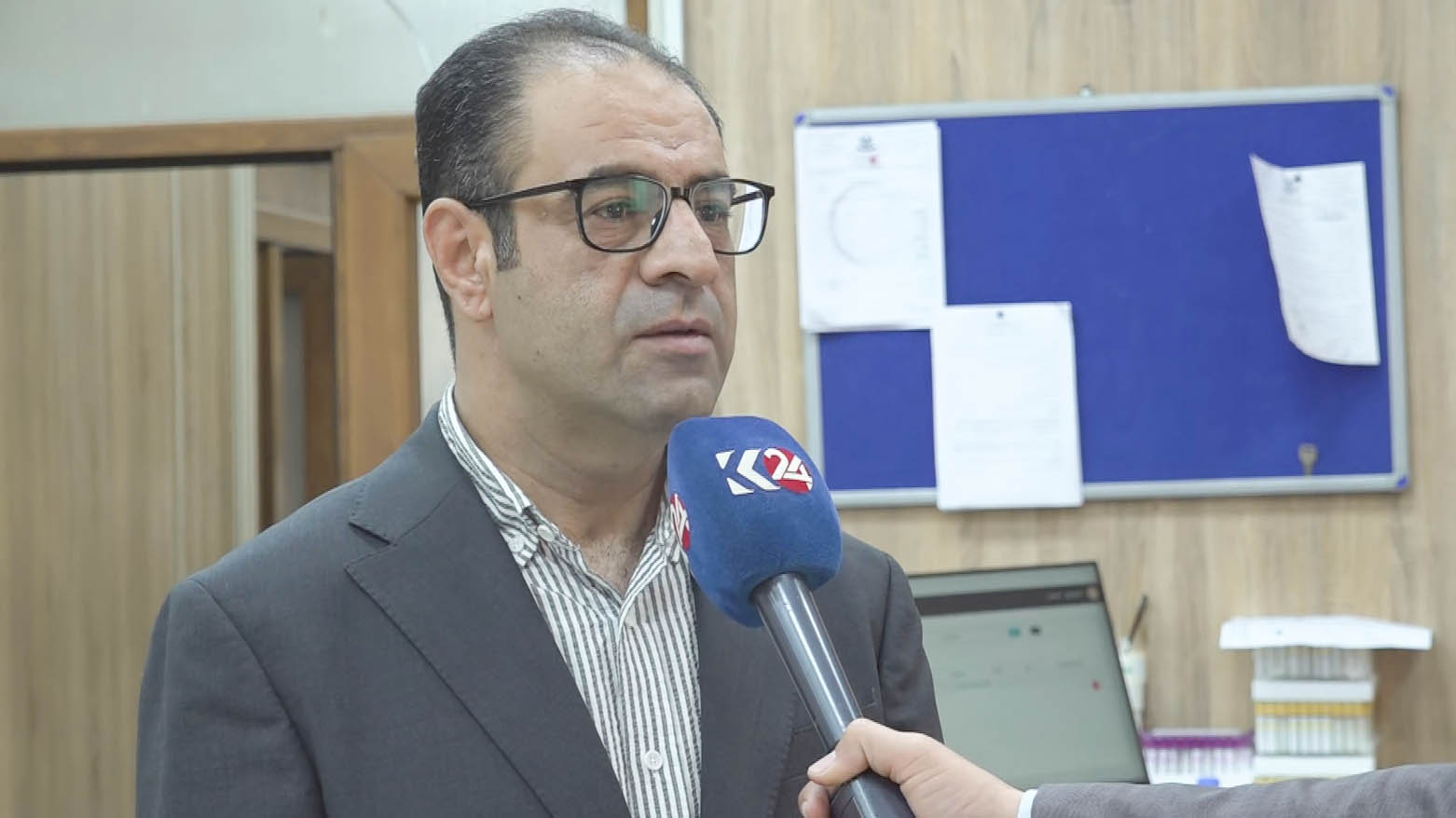Erbil Digitalizes Blood Bank System in Major Health Sector Overhaul
Erbil's health sector has digitalized its Blood Bank, connecting all hospitals to a central system to improve efficiency, track supply, and reduce costs as part of a wider KRG initiative to modernize public services.

ERBIL (Kurdistan24) – In a significant step toward modernizing public services, health authorities in Erbil have successfully digitalized the city's Blood Bank Directorate, creating a fully integrated system that connects all public and private hospitals to a central database. This initiative, part of a broader Kurdistan Regional Government (KRG) strategy to eliminate routine procedures and digitalize its institutions, aims to create major efficiencies in blood supply management, improve patient care, and provide real-time data for health officials.
The move is a core component of a wider push within the region's health sector.
In an exclusive statement to Kurdistan24, Dr. Dilovan Muhammed, the Director General of Health in Erbil, confirmed that hospitals and health centers have begun the process of digitalizing their operations.
"For more than a year, we have planned to implement digital work and the digitalization of systems in hospitals, health centers, and some directorates," Dr. Muhammed stated, noting that the Blood Bank project has been fully operational for over a year.
"All public (governmental) hospitals, as well as private sector hospitals, are connected to the Blood Bank Directorate through this digital system," he added.
The Director General of Health in Erbil underscored the profound impact the new system has had on streamlining communication and logistics between medical facilities and the central blood bank.
He explained that every individual who donates blood is now registered digitally, creating a comprehensive and easily accessible record.
A key benefit of this real-time system is the ability to constantly monitor inventory. "Through the system, we know how much blood is available in the bank," Dr. Muhammed said. "Because when the level drops, we can issue a call for organizations and volunteers to come and donate blood."
This enhanced capability is crucial for meeting the significant daily demand for blood products in the capital. Dr. Dilovan Muhammed stated that the Blood Bank Directorate prepares 250 units of blood daily for all hospitals, serving a critical need for patients with thalassemia, those undergoing surgery, and others requiring transfusions.
He noted that the supply is sourced from two main channels, with fifty percent of the blood bank's inventory provided by volunteers and the other fifty percent coming from replacement donations made on behalf of specific patients.
The digitalization effort is not limited to the blood bank. Dr. Muhammed confirmed that the Pirmam Hospital, Rizgari Hospital, and the Thalassemia Center have already had their systems converted to digital platforms.
The Children's and Maternity Hospital is slated to be the next facility to undergo this transformation in the near future.
He reiterated that the implementation of this system provides immense facilitation for organizing work, collecting accurate data, and significantly reducing operational costs within hospitals.
The transition away from traditional methods means there will no longer be a need to use paper, printers, and ink, in addition to cutting down on routine bureaucratic procedures.
Looking ahead, the Erbil General Directorate of Health has an even more ambitious goal for its digital transformation.
Dr. Muhammed revealed a long-term vision to create a comprehensive digital profile for every patient. He explained that officials are trying, by creating an account for each patient, to record all of their medical information from every hospital they visit, effectively creating a unified and lifelong digital health record.